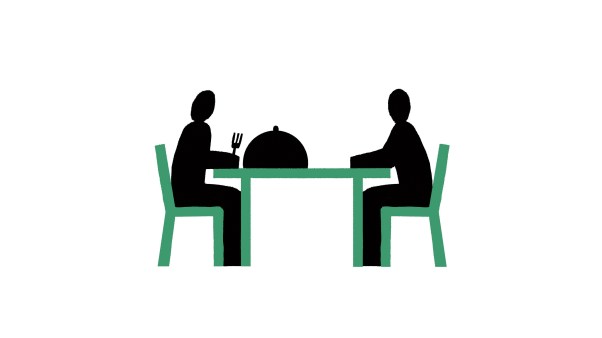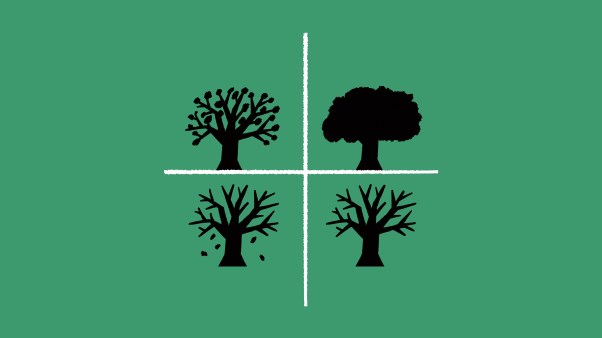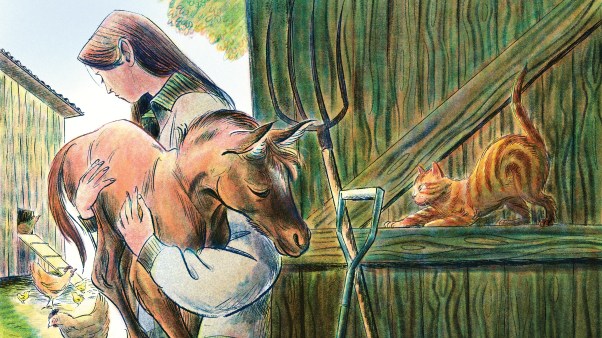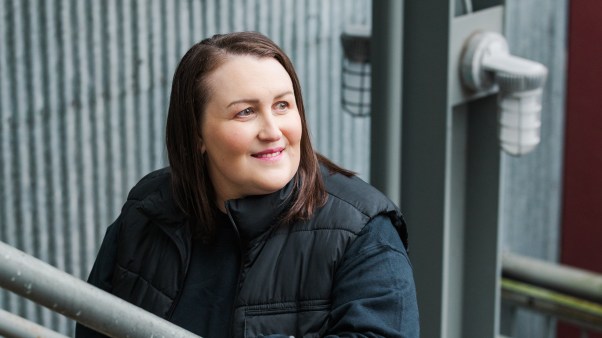On Thanksgiving week the year I turned 11, my father had a heart attack and died suddenly in his sleep. My parents had divorced when I was two, and my dad lived by himself in an apartment in suburban Atlanta.
He was a man of exceptional kindness and gentleness, gifted in music and patient with the elderly. But when I visited him on the weekends, I got the impression things weren’t going well for him. He was overweight and sedentary, and his apartment was often full of empty pizza boxes and fast-food wrappers, disheveled clothes and dirty dishes. He had remarried after my parents split up, but that relationship had foundered as well, so he was alone when he died. In the parlance of our times, I would classify my dad’s passing as a “death of despair.”
I was shooting hoops at my grandmother’s house when my mom arrived and tearfully broke the news to me. As a preteen, the unfamiliar, highly physical sensation of grief was terrifying to me. It was not unlike seasickness, except that I could not find the horizon. I was overcome by a brutal combination of anxiety, nausea, and vertigo, a visceral experience that over the years I’ve come to refer to as “the pit.”
A brief encounter with this toxic brew of emotions made me dead certain I needed to move on from the pain as quickly as possible. No one in my family told me I needed to, and in fact, to her great credit, my mom did everything in her power to keep me connected with my dad’s family and his memory until I left home.
But I silently intuited the existential danger posed to me by my father’s death. If I become vulnerable to the suffering, I thought, I will enter an unremitting darkness and chaos with no companions or guides and no guarantee of finding the way out. The way to avoid falling into the abyss was to keep running—relentlessly moving forward.
I did just that, uprooting my life every few years to pursue a new, exciting opportunity in another city or state. I found that wherever I went, grief was in close pursuit. A few months after a move, the pit would return, usually expressing itself as a piercing nostalgia for the people and place I had just left behind. In trying to outrun the pain, I became a person of anger and rootlessness, damaging my marriage and wounding my children with bitter words and unwanted change.
What I didn’t know as a teenager—and what I most wish I’d learned earlier—is that no one gets through life without wrenching loss, and no one who experiences it can be made whole without first being wounded by it.
As we get older, the cross-shaped nature of human existence impresses itself on us more and more forcefully. Despite our attempts to run from it, push it away, or distract ourselves from it, pain is inescapable. Certain aspects of American culture train us to think that satisfaction, pleasure, and happiness are standard and that tragedy is a temporary and accidental suspension of this normal state of affairs.
But as the Australian musician Nick Cave says, “we are all, at some point in our lives, obliterated by loss. If you haven’t been by now, you will be in time.” Cave, who lost his 15-year-old son in a tragic accident, speaks from intimate acquaintance with grief.
Even if we somehow make it to the end of our days without hardship, we will not be able to “get out of life alive,” as the theologian Stanley Hauerwas loves to say. Fleeing from the harsh pangs of sadness, despondency, anger, and regret actually gives those emotions more power over us. We become hollowed out and are diminished by what we run from.
The rejection of vulnerability does even worse things to us. It shrivels us, tempting us toward meaninglessness and annihilation until, in Nick Cave’s words, we “become a small, hard thing that has contracted around an absence.”
To borrow a phrase from Saint Isaac of Nineveh, grief involves a “stripping away of self” in the presence of God. The self-protections we have painstakingly constructed are removed until we find ourselves as close as we will ever be, as Cave says, “to the fundamental essence of things.”
As I have begun to grapple with God over the loss of my dad, I’ve come to realize that the intellect does not get me very far. The Scriptures register virtually no interest in the reasons why life is so painful. Indeed, the Christian tradition largely regards those questions as a distraction from the immediate and urgent work of knowing God in the midst of suffering.
Instead of offering answers, the Scriptures offer this hope: Our suffering is not meaningless and will not destroy us in the end.
In the Christian calculus, suffering is soulcraft. I don’t mean to suggest that suffering or injustice is warranted because it produces character, or that God is the source of our pain. What I mean is that God’s strategy for our suffering is most often not deliverance but accompaniment and compassion—“suffering with.” Rather than removing the pain, God becomes a fellow sufferer with us. He elicits a growing fortitude and selflessness, filling us with his divine love.
French philosopher Simone Weil, who was an admirer of Christianity but not a believer, saw this purifying dynamic as faith’s most important feature: “The extreme greatness of Christianity lies in the fact that it does not seek a supernatural remedy for suffering, but a supernatural use for it,” she wrote in Gravity and Grace.
Hardship can engender bitterness and hatred, but it can also be the crucible where our souls are reforged.
At the age of ten, the comedian Stephen Colbert lost his father and brothers to a plane crash. When Colbert tells his story, he gives thanks for his mother who, in the midst of unimaginable pain, taught him what it means to be vulnerable to suffering without becoming embittered by it. By holding on to hope in a nontheoretical way after the accident, she became radiant—expansively filled with the love of God—in a way she could not have without the horror of her loss.
She made it possible for Colbert to hold two things together in tension: It was possible to wish something had never happened and at the same time be grateful for the work that pain alone can do in our souls. Because of her example, Colbert maintains, “I love the thing that I most wish had not happened.”
Suffering infuses us with the character of God we encounter through it. In 2 Chronicles 5:14, the glory of God in the temple presses in so weightily, so heavily, that the priests cannot stand up to minister. When we become acquainted with God in anguish, we experience this same kind of divine gravity. People who have known deep hardship speak with a gravitas that mere eloquence cannot account for. Their words and presence carry the glory, hope, and healing of God himself.
The African American preacher Gardner Taylor insisted that being educated and dynamic in the pulpit is not enough to bring a congregation to divine encounter. A preacher has to limp before he or she can speak with purifying, divine fire and be broken before he or she can heal. In a talk to seminarians, he said:
Now you may tickle people’s fancy, but you will never preach to their hearts until at some place, some solemn appointment has fallen upon your own life and you have wept bitter tears and gone through your own Gethsemane and climbed your own Calvary. That’s where the power is! It is not in the tone of the voice; it is not in the eloquence of the preacher; it is not in the gracefulness of his gestures; it is not in the magnificence of his congregation; it is in a heart broken and put together again by the eternal God.
I want to know the God that Gardner Taylor and Stephen Colbert know.
The year I turned 41, some 30 years after my father died (probably no coincidence), I sat silently in a bathtub on the third floor of my row house in Pittsburgh. It was the only place in the entire house where I couldn’t hear my kids shouting.
In that space, I opened myself to the grief I had been running from for three decades. I told my wife that by sitting in silence over and over, I felt as though Jesus was teaching me to grieve my dad and introducing me to my heavenly Father for the first time. He gave me the hope that I could listen to my fear, regret, and anguish instead of run away from them.
I haven’t arrived, of course. I am at the beginning and not the end of my earthly suffering. But I have experienced enough of his presence in darkness to believe that God can be trusted with the process.
Jonathan Warren Pagán is an Anglican priest living and serving in Austin, Texas.












